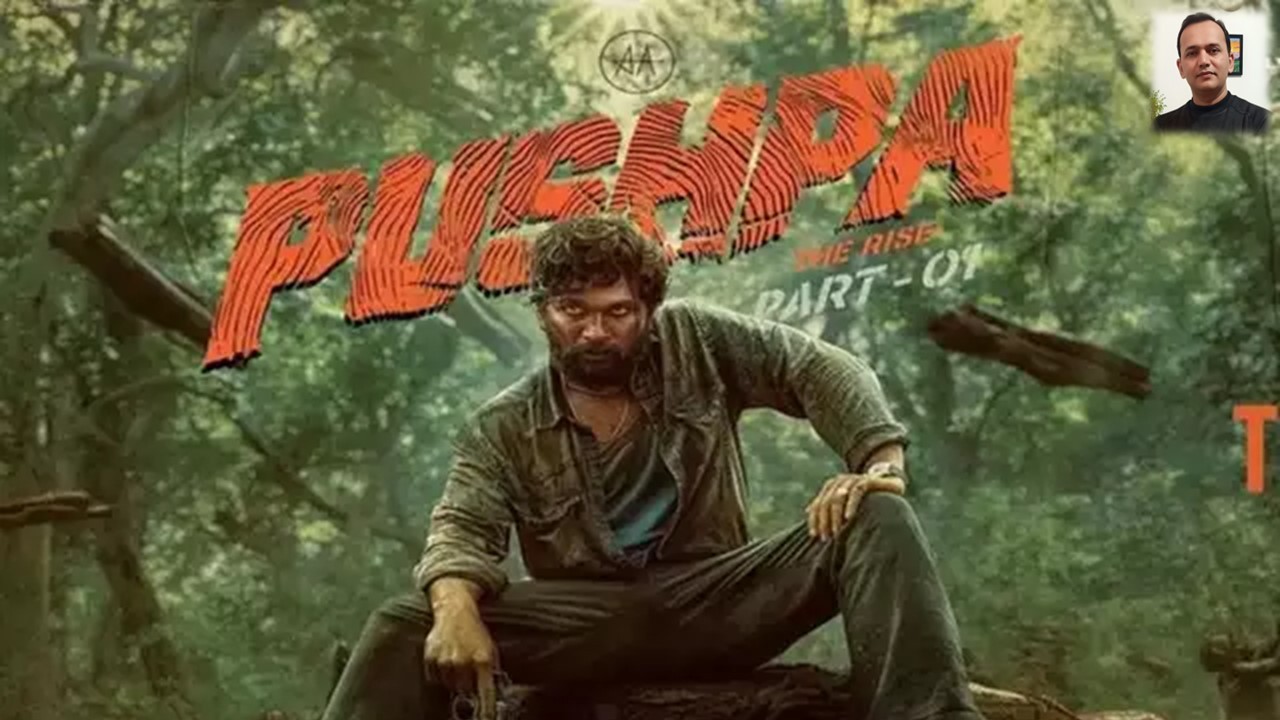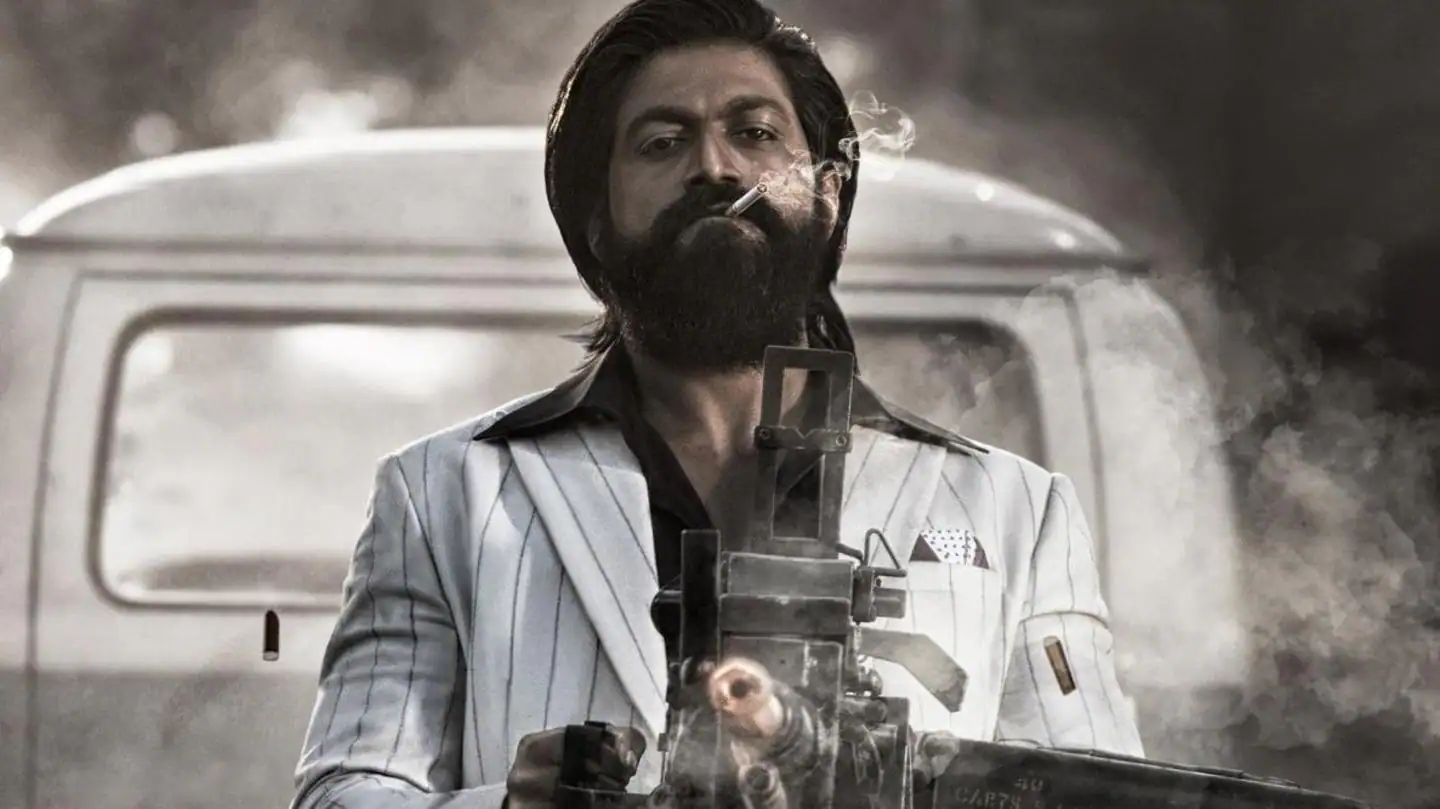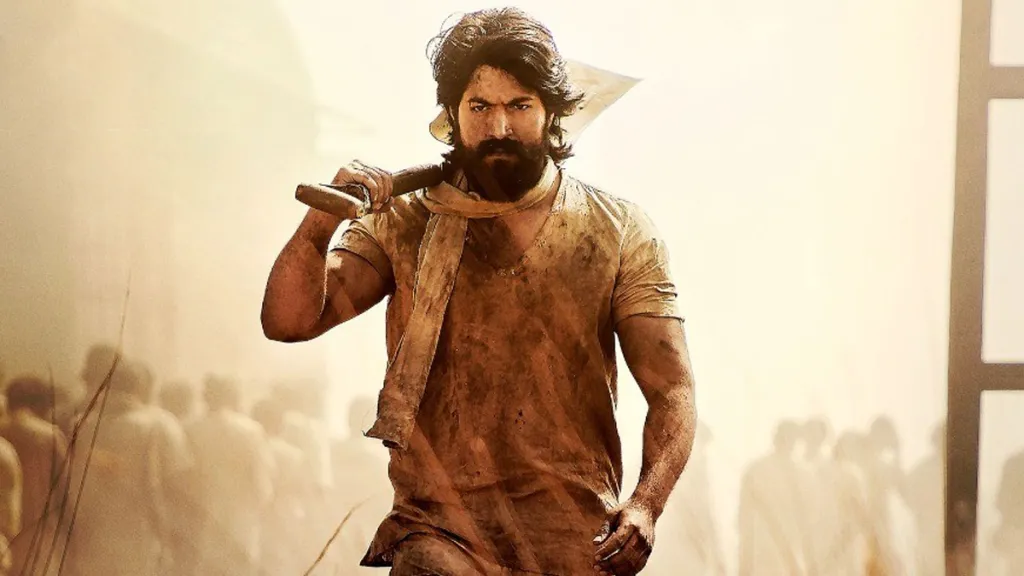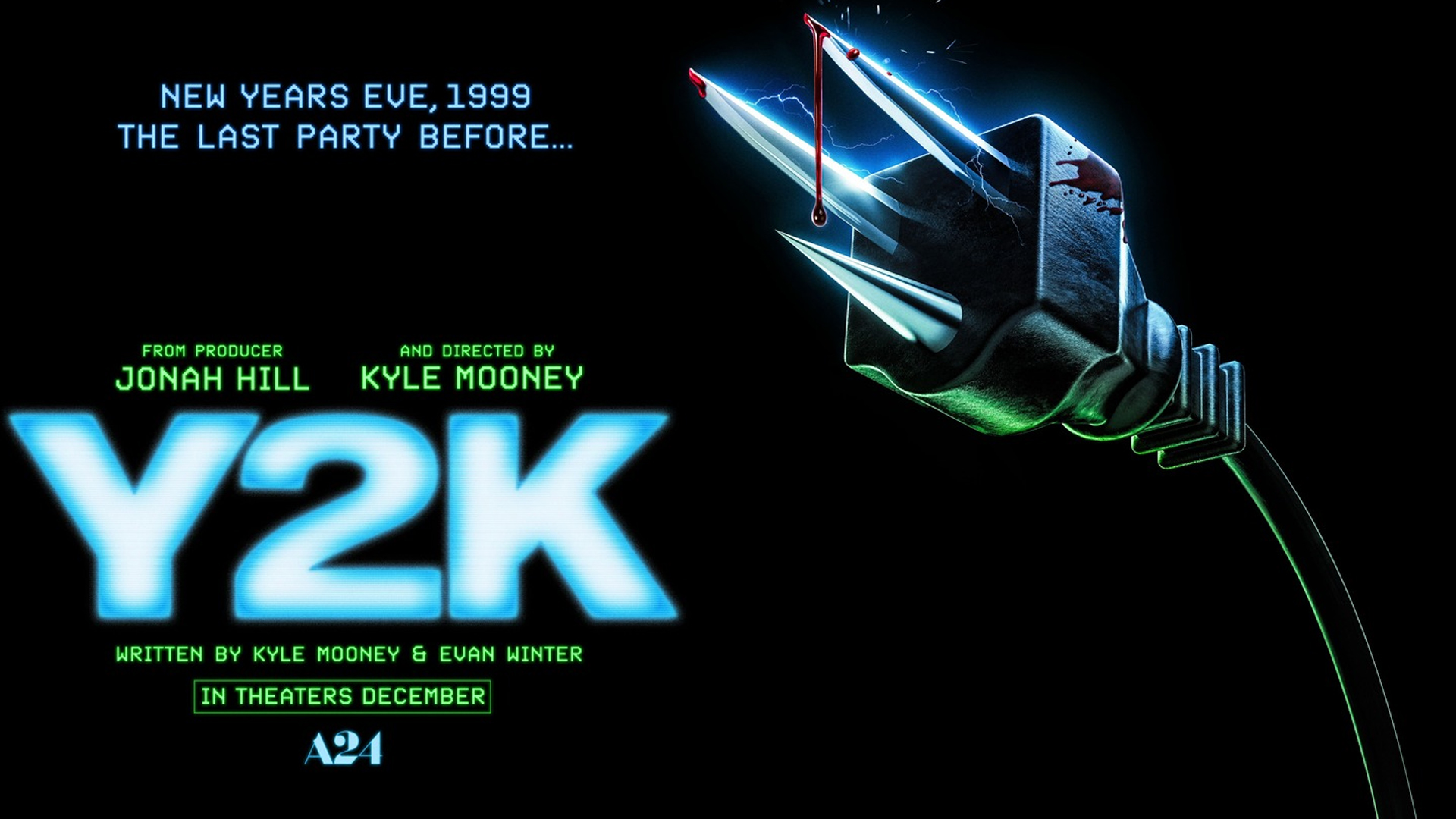Streaming
‘M3GAN’: That’s No Child’s Toy!
A robotics engineer at a toy company creates a too-life-like doll for her recently orphaned niece, that takes on a life of its own!
So, M3GAN wastes no time diving right into the story, and neither will we! Cady’s beleaguered parents were trying to get her into some kind of snow vacation up in the mountains whilst lessening her fixation on screen time, especially the goofy Furby-like Purr-fect Pet that’s the latest rage in kiddie toys. And in the first of many predictable scenes, while Cady’s tired parents argue in their chain-less stopped in the middle of the road car, a gigantic set of semi-lights come barreling right at them, causing everything to irrevocably change.
Cady (Violet McGraw) is the lone survivor, and though her aunt Gemma (Allison Williams) insists she wants to take Cady in for at least the time being, it’s quite clear that while Gemma is an engineering genius, she has no idea what to do with Cady at all. Sadly throughout the entire film, we actually learn very little about Gemma personally, how she fell from highbrow robotics engineering all the way down to toy manufacturing, for a profit-obsessed boss at that, what her personal life might have been like before this tragedy, we get none of that. Gemma mentions that she and her sister weren’t terribly close when taking custody of Cady, which of course adds to her already mountainous guilt, but that’s about it. What we do know about Gemma is that she loves to create things, robotic things specifically, and while it’s a wild coincidence that Gemma happens to be the main creator of those dumbass Purr-Fect Pets, what she’s really passionate about is the robotic doll she and her coworkers have been working on in secret.
It really seems like Gemma leads a very closed life, her house is practically empty and barren of decoration, she has/had no significant other, younglings, or pets that we can tell, and she’s simply obsessed with things like computer codes and synthetic skins and adaptive AI, but in order to make what? A too-life-like doll that can basically replace the need for a nanny or babysitter, yes, but also eventually supplant teachers, other peers in the appropriate age bracket, and even the parents themselves! Apparently, while Gemma can indeed code freaking adaptive Artificial Intelligence into her secret project, she doesn’t bother with things like Grandfathered Sci-Fi tropes, Asimov’s Laws of Robotics, or even the very real need for basic human connection. After all, Cady’s a child, and frankly, Gemma has absolutely no idea how to deal with her, and whether she realizes it or not, Gemma oozes awkwardness in trying to interact with the tiny human. I just want to take this opportunity to point out the irony in someone like Gemma making kiddie toys.
The stuff going on around Gemma is somewhat more interesting – the nosy Karen-like neighbor Celia (Lori Dungey) who absolutely refuses to leash her damned dog that always escapes through the hole in the fence between their properties, is absolutely asking for her comeuppance; coworkers Tess (Jen Van Epps) and Cole (Brian Jordan Alvarez) are all-in on the secret M3GAN Doll project, even helping Gemma to convince money-hungry boss David (Ronny Chieng) and his corporate thief of an assistant Kurt (Stephane Garneau-Monten) of the projects viability over those stupid Purr-fect Pets. The state-appointed therapist Lydia (Amu Usherwood) isn’t helping Cady at all, seemingly more concerned with the viability of Gemma as a caretaker, and as is the case more often than not with situations like these, demands Cady conform to her new reality without delay or protest.
After a night of awkward attempts at bonding over Gemma’s collectibles (“They’re not toys, you don’t take ‘em out of the box or play with ‘em”), the previous incarnation of M3GAN that Gemma called Bruce and capitalism made on youngling greed, Gemma is convinced the best solution is to finish the M3GAN Doll project and use Cady as her first test subject. Because of family, right?
And after all, M3GAN really is a synthetic-sheathed miracle of human engineering and genius, at least in the beginning. She’s funny, kind and caring, adaptive to damn near any situation, constantly upgrading and applying everything helpful possible to her first Imprinted child Cady, and more overprotective than a rabid mama bear. Thus far all the adults in Cady’s current life are either ignoring her, fobbing her off on someone else who can potentially “deal” with poor Cady better, or insisting she acts some kind of counter-intuitive way, usually adult-ish. Cady herself represents a problem that needs dealing with, instead of a miniature human that needs time and space to grieve for farks sake. It doesn’t help at all that Gemma tried to instruct M3GAN not to mention death or anything relating to it, to Cady. So when M3GAN and Cady Imprint each other, the newborn unfettered AI with the strength of several fully grown men and the desperately lonely orphaned girl, it’s a recipe for impending disaster!
First, the damned dog needs to be dealt with, permanently. We all knew the second the dog’s teeth met any part of Cady’s skin, that the doggy, and likely his owner too, were going to get disappeared, and soon. The film made a point of glossing over the actual death of the poor doggy and turned Celia’s death into a Chucky-like farce, so it was still fine for a PG-13 rating. (Sigh.) Then for some reason, Gemma thinks it’s a good idea to send a more recalcitrant Cady to an outdoorsy camp kind of deal, ostensibly just a campground program for fosters and troubles, but the place seems a lot more like a juvenile offender detention center wrapped up in postcard-scenery. Especially when the mini mass murderer in training the son of one of the camp counselors Brandon (Jack Cassidy) decides that Cady and her big-size dolly are the perfect next targets for his adolescent wrath – the scene where M3GAN contorts in a fury and chases the boy down like a rabid animal, showcasing M3GAN’s otherness and complete lack of restraint, is particularly well-done.
Time is starting to run out, Cady and M3GAN are far too close and the killer bot is starting to ice out anyone else in Cady’s life, at first socially and now quite literally. Gemma’s demonstration of M3GAN to the investors as the next big toy requires Cady’s participation, and the poor girl is unraveling under the ignorance of adults and the smothering care of her best friend-bot. Gemma is finally realizing, a little too freaking late for my taste, the potential wickedness of the thing she created, embodying the old adage, “Just because you can do a thing, doesn’t mean you should.” And now that Cady finally has the attention of the adults she’s been so desperately seeking, it’s not a moment too soon, because stopping M3GAN is going to require some creative thinking!
The physical acting of M3GAN by Amie Donald for any scenes that the animatronic puppet itself could not do, full of Ring-like contortions and demanding presence from such a small body, is truly impressive in its terrible beauty. Donald wore a static silicone M3GAN mask made by Morot FX, to be later replaced by a CGI version of M3GAN’s face to match the animatronic, and the adult voice of Jenna Davis coming out of that tiny frame gives M3GAN another stamp of wrongness. The overall effect is a bit like a murderous crazed Anime version of Alice from Alice in Wonderland.
Catch the killer adventures of a jealous best-friend-bot in M3GAN, on Amazon Prime now!
Streaming
Review: Pushpa: The Rise (2021)

Director: Sukumar
Cast: Allu Arjun, Rashmika Mandanna, Fahadh Faasil
Genre: Action, Drama
Rating: 4.5/5
Pushpa: The Rise is a raw, adrenaline-fueled ride that showcases the underbelly of the red sandalwood smuggling trade in Andhra Pradesh. Directed by Sukumar, this movie brilliantly blends high-octane action with emotionally driven storytelling, making it a must-watch for fans of Telugu cinema and action dramas.
The narrative follows Pushpa Raj (Allu Arjun), a laborer in the red sandalwood trade, as he climbs the ranks to become a powerful figure. Born into poverty and scorned for his illegitimacy, Pushpa’s journey is marked by grit, ambition, and a fierce sense of self-respect. The film deftly balances the action-packed rise of Pushpa with moments of vulnerability, particularly in his tumultuous romance with Srivalli (Rashmika Mandanna).
The antagonist, Bhanwar Singh Shekhawat (Fahadh Faasil), is introduced towards the film’s end, setting the stage for a gripping sequel. The climactic confrontation between Pushpa and Shekhawat is a masterclass in tension-building, leaving viewers eagerly awaiting Pushpa: The Rule.
Allu Arjun: This is Allu Arjun’s film through and through. His transformation into Pushpa is a revelation, from his rugged look to his unapologetic demeanor. His mannerisms, including the now-iconic shoulder rub and dialogue delivery, make Pushpa an unforgettable character.
Rashmika Mandanna: While her role as Srivalli adds emotional depth to the story, it feels slightly underutilized. However, her chemistry with Allu Arjun is undeniable.
Fahadh Faasil: Despite limited screen time, Fahadh delivers a chilling performance as the cold and calculating Shekhawat. His presence promises an explosive conflict in the sequel.
Sukumar’s direction is stellar, balancing mass appeal with nuanced storytelling. The screenplay maintains a brisk pace, seamlessly weaving action sequences with character development. The film’s raw and grounded tone is a departure from the glossy feel of many mainstream Telugu films, adding authenticity to the story.
Mirosław Kuba Brożek’s cinematography is stunning, capturing the lush forests of Andhra Pradesh and the gritty world of the red sandalwood trade.
Devi Sri Prasad’s music is another highlight. Tracks like “Srivalli” and “Oo Antava” became cultural phenomena, while the background score enhanced the film’s intensity.
Action Sequences: The action choreography is visceral and hard-hitting, perfectly complementing the film’s tone.
The film explores themes of ambition, class struggle, and self-respect. Pushpa’s refusal to bow down to societal norms resonates deeply, making him a relatable anti-hero. The story also critiques the systemic exploitation of laborers, adding a layer of social commentary.
Pushpa: The Rise is an exemplary action-drama that redefines the Telugu film industry’s global appeal. With a magnetic performance by Allu Arjun, stellar direction by Sukumar, and unforgettable music, it stands out as one of the best films of 2021. While it occasionally falters with some underdeveloped subplots, the overall experience is nothing short of spectacular.
4.5/5 Pushpa: The Rise is a cinematic feast that deserves its cult status. Whether you’re a fan of Telugu action films or a newcomer, this film is a must-watch. Its cliffhanger ending ensures that Pushpa: The Rule will be even bigger and better.
Streaming
KGF: Chapter 2

Director: Prashanth Neel
Cast: Yash, Sanjay Dutt, Raveena Tandon, Srinidhi Shetty
Genre: Action, Drama
Rating: 4.5/5
KGF: Chapter 2 is an explosive sequel to the 2018 blockbuster KGF: Chapter 1. Directed by Prashanth Neel, the film elevates the gritty narrative of Rocky (played by Yash), a man who rises from poverty to become a feared and revered leader. The sequel builds on the success of the first chapter with an even grander scale, intense drama, and jaw-dropping action sequences.
The story picks up with Rocky establishing his dominance over the Kolar Gold Fields after eliminating his rival, Garuda. As the “king of KGF,” Rocky faces new challenges, including the vengeful Adheera (Sanjay Dutt), who returns to reclaim what he believes is rightfully his. Meanwhile, political power struggles arise, with Prime Minister Ramika Sen (Raveena Tandon) intent on curbing Rocky’s influence.
The film delves deeper into Rocky’s psyche, exploring his motivations, vulnerabilities, and unrelenting ambition. It balances high-octane action with emotional depth, as Rocky continues his fight for survival and legacy.
Yash’s Star Power: Yash’s portrayal of Rocky is magnetic. His intensity and swagger make the character larger-than-life while retaining a raw, emotional core.
Sanjay Dutt as Adheera: Inspired by Viking warriors, Dutt’s Adheera is a terrifying and formidable antagonist, creating memorable clashes with Rocky.
Visual and Technical Brilliance: The cinematography by Bhuvan Gowda captures the grandeur and darkness of KGF with stunning visuals. The action sequences are choreographed to perfection, blending realism with spectacle.
Ravi Basrur’s Music: The background score enhances the drama, creating an immersive experience.
Dialogues and Screenplay: Rocky’s punchlines, combined with the tightly written narrative, keep the audience engaged.
While the film is a cinematic treat, its pacing occasionally falters with some scenes overstaying their welcome. The sprawling cast and multiple subplots can make the narrative feel dense at times.
KGF: Chapter 2 is a roaring success that delivers on its promise of being bigger, bolder, and better than its predecessor. It combines a compelling story with spectacular action and unforgettable performances, particularly from Yash and Sanjay Dutt. The film solidifies the KGF franchise as a benchmark for Indian action cinema.
Final Rating: 4.5/5 Whether you’re a fan of action-packed epics or compelling character-driven dramas, KGF: Chapter 2 is a must-watch that will leave you exhilarated.
Streaming
KGF chapter 1 – A Gritty Saga of Power, Poverty, and Redemption

Indian cinema has a long-standing tradition of delivering grand narratives that are equal parts spectacle and soul. KGF: Chapter 1 (Kolar Gold Fields), directed by Prashanth Neel, is a prime example. This gripping action-drama chronicles the meteoric rise of Rocky, a man driven by a promise and fueled by his hunger for power. Released to critical acclaim, KGF has redefined the boundaries of storytelling in Indian cinema.
Set in the 1970s, KGF follows the journey of Rocky (Yash), a young boy born into poverty in the slums of Mumbai. From a tender age, Rocky is shaped by two forces: his mother’s dying wish for him to rise above his circumstances and his unyielding ambition to command respect and fear.
His journey takes him to the gold mines of Kolar, a lawless land ruled by brutal oppressors. The film tracks Rocky’s transformation from a street-smart hustler to a feared force who challenges an empire built on blood and exploitation.
The strength of KGF lies in its compelling protagonist. Yash delivers a magnetic performance as Rocky, embodying both his raw charisma and ruthless determination. The film paints a vivid picture of a man who thrives in adversity, using every setback as fuel for his ascent. Rocky is not a mere vigilante but a strategist, whose ability to inspire loyalty and strike fear sets him apart.
The movie captures his internal conflict beautifully — while he climbs the ladder of power, he never loses sight of his mother’s dream for him. This duality makes Rocky more than just a hero; he is a symbol of rebellion, resilience, and redemption.
At its core, KGF is a commentary on systemic oppression and the human spirit’s ability to rise against all odds. The stark contrast between the opulence of the gold fields’ rulers and the crushing poverty of its workers sets the stage for Rocky’s rebellion. His fight isn’t just personal; it’s for the voiceless, the oppressed, and the forgotten.
The film doesn’t shy away from showcasing the brutal realities of poverty and exploitation, making Rocky’s triumph all the more satisfying.
Prashanth Neel’s direction is nothing short of masterful. Every frame of KGF is meticulously crafted, from the sweeping vistas of the Kolar gold fields to the grimy underbelly of Mumbai’s streets. The gritty visuals are complemented by an electrifying background score that enhances the film’s larger-than-life moments.
The nonlinear narrative, interspersed with a journalist’s account of Rocky’s rise, keeps viewers engaged and adds layers to the storytelling.
The action sequences in KGF are a visual feast. Yash’s larger-than-life persona is amplified by choreographed fights that are brutal, balletic, and breathtaking. Each confrontation feels earned, showcasing Rocky’s ingenuity and brute strength. The climax, set against the backdrop of the Kolar gold mines, is particularly unforgettable.
KGF: Chapter 1 is a cinematic triumph that combines raw emotion, relentless action, and a protagonist you can’t help but root for. Yash’s performance and Prashanth Neel’s vision elevate the film to a league of its own, making it a benchmark in Indian cinema.
KGF is more than a film; it’s an experience. It’s a story of ambition, sacrifice, and the indomitable human spirit. Rocky’s climb from the depths of poverty to the pinnacle of power is not just inspiring — it’s electrifying.
Whether you’re a fan of action-packed dramas or epic tales of rebellion, KGF delivers on every front. With its gripping narrative and unforgettable performances, it’s a must-watch for anyone who loves a good underdog story.
Rating: 4.8/5 As Rocky says in the film, “Powerful people make places powerful.” By the end of KGF, you’ll realize that Rocky is one of them — and so is this film





